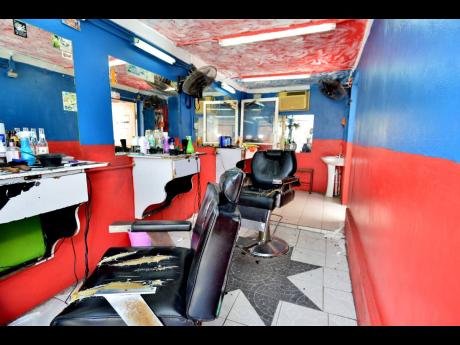Yaneek Page | Easing the pain of COVID shutdown for ‘vulnerable’ barbers, hairdressers
ADVISORY COLUMN: SMALL BUSINESS
Last week, The Gleaner published a news story titled ‘Shear pain for barbers, hairdressers: coronavirus fallout worsens as 10-person limit takes effect’, which detailed the severe financial impact of COVID-19 on the beauty and barber sector.
A significant proportion of Jamaica’s micro-businesses operate in that sector, with many being among the ‘most vulnerable’ should we adopt the term used by Minister of Finance Dr Nigel Clarke recently to describe tourism workers who earn below $1.5 million per year.
In fact, hairdressers, barbers, and other workers in the beauty sector are subject to a universe of costs and statutory obligations that see many earning income after expenses of well below a million dollars per annum, as I outlined in a previous column – Tipping your barber, hairdresser’ on October 28, 2018.
Even before the announcement of the country’s new COVID-19 containment measures, some operators in the sector were already reeling from daily revenue losses of up to 100 per cent as customers shunned the non-essential service.
Now, under the Disaster Risk Management (Enforcement Measures) (No. 2) Order 2020, from March 25 to April 23 barbershops and hair salons can only operate between the hours of 10 a.m. to 5 p.m. and can have no more than 10 persons at any time, with a maximum of two customers waiting to be served.
While the new measures are meant to support the critical public-health priority of social distancing, it is also a signal to the public that these shops and salons pose significant health risks and exposure that require emergency regulatory procedures and oversight.
For some customers, that may be a signal to avoid these spaces until the crisis abates and the regulations are lifted.
Despite the foregoing, the multibillion-dollar COVID Allocation of Resources for Employees, or CARE, programme “to assist workers and businesses during the emergency period caused by the coronavirus COVID-19”, does not include any specific provisions for self-employed or micro business operators in the beauty and barber sector, based on the information currently available on the website of state media JIS – jis.gov.jm/jamaica-and-the-coronavirus/.
While the current crisis is likely not yet at its peak and dramatically evolving day by day, there may be a few measures hairdressers and barbers can take now to try to ease the pain of COVID-19 on their business.
The first is to learn all the facts and pay constant attention to credible sources of information that affect their business, customers, and the country, generally. This means reviewing the websites of the JIS and the Ministry of Health and Wellness daily. This will ensure that they get accurate and relevant information in real time and can make decisions and communicate with their customers and stakeholders quickly.
An important proactive measure is to immediately address the fear that customers now face about COVID-19 exposure at a salon, which is a valid concern. One way to do this is to go beyond the current government guidelines in observing the best possible health and safety precautions in the circumstances. This may mean operating by appointment only to reduce the traffic in the salon. Also, administering a quick questionnaire to customers on possible COVID-19 exposure in recent times as a prerequisite to being served. For example, asking every customer before serving them if they have returned to Jamaica in the last 14 days or been around anyone who returned to Jamaica in the last 14 days or if they have been experiencing any cough, fever, runny nose, or sore throat in the last 14 days.
Just asking these questions, and knowing that your barber or hairdresser has refused to serve anyone who had such exposure may give customers some comfort in knowing that their service provider is minimising risks.
Other measures would include sanitising the salon every hour, washing hands after each customer, having hand sanitiser available to all customers, enforcing a ‘silence’ rule to reduce conversation that can expel droplets, and more stringent measures for cleaning tools, chairs, and so on.
The key to getting customers into a shop or salon at this time, in addition to enforcing the aforementioned measures, is constant communication with customers. Call, text, or send a WhatsApp message to customers individually, not as a broadcast to share the new measures, and invite them to make an appointment.
This alone could be the difference between having a few customers per day or virtually none. Effective communication at this time means first asking how they are coping then sharing the new measures and inviting them to come in for service.
In some instances, it may help to offer a special COVID-19 price. Specifically, this would be a discount or concession aimed at goodwill for customers in need or to entice customers to make an appointment. This is not the time to increase prices on your customers or levy a special ‘COVID-19’ fee as some operators have started to do.
Finally, this would also be a good time to engage your professional association or political representatives to advocate that the Government’s CARE programme extend cash support or grants to self-employed persons who may be among the most vulnerable employed labour at this time.
One love!
Yaneek Page is the programme lead for Market Entry USA, a certified trainer in entrepreneurship, and creator and executive producer of The Innovators and Let’s Make Peace TV series.

